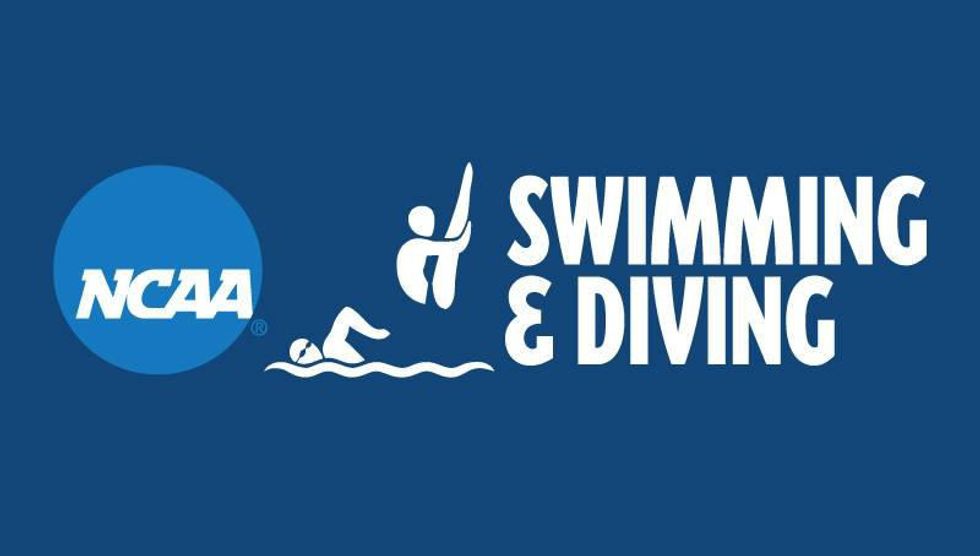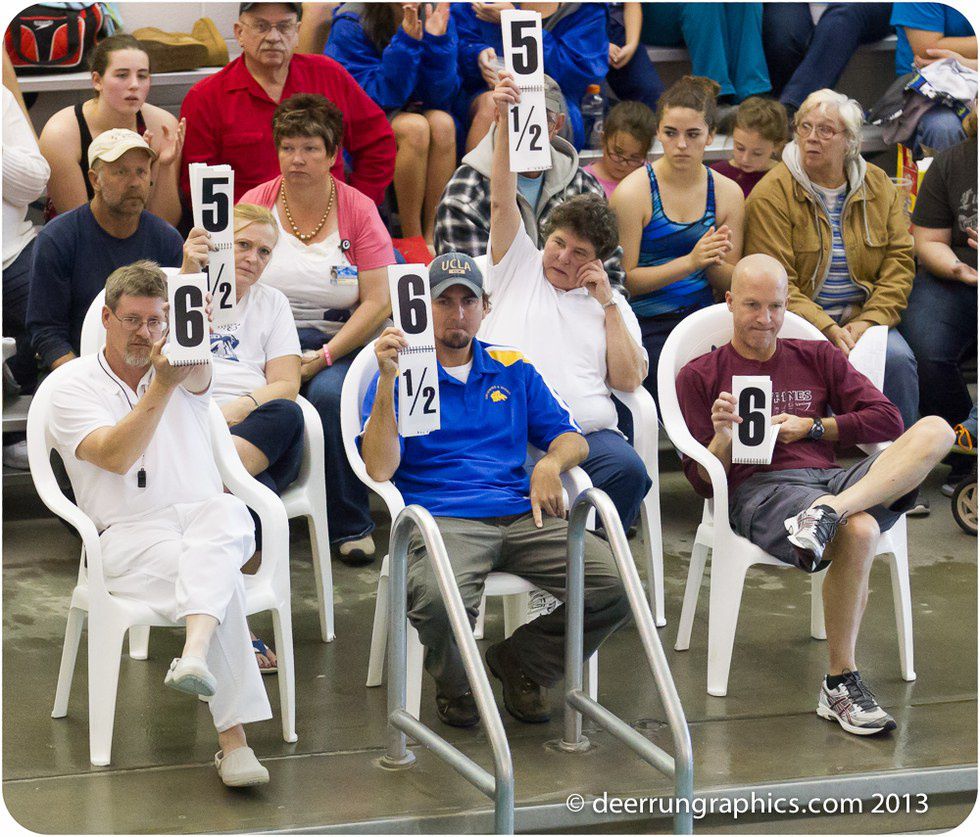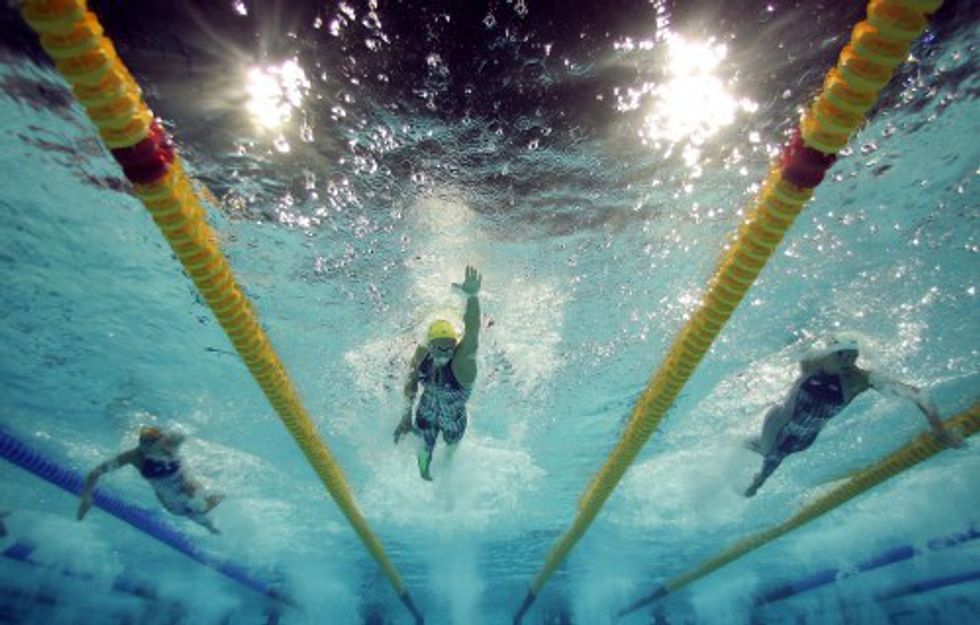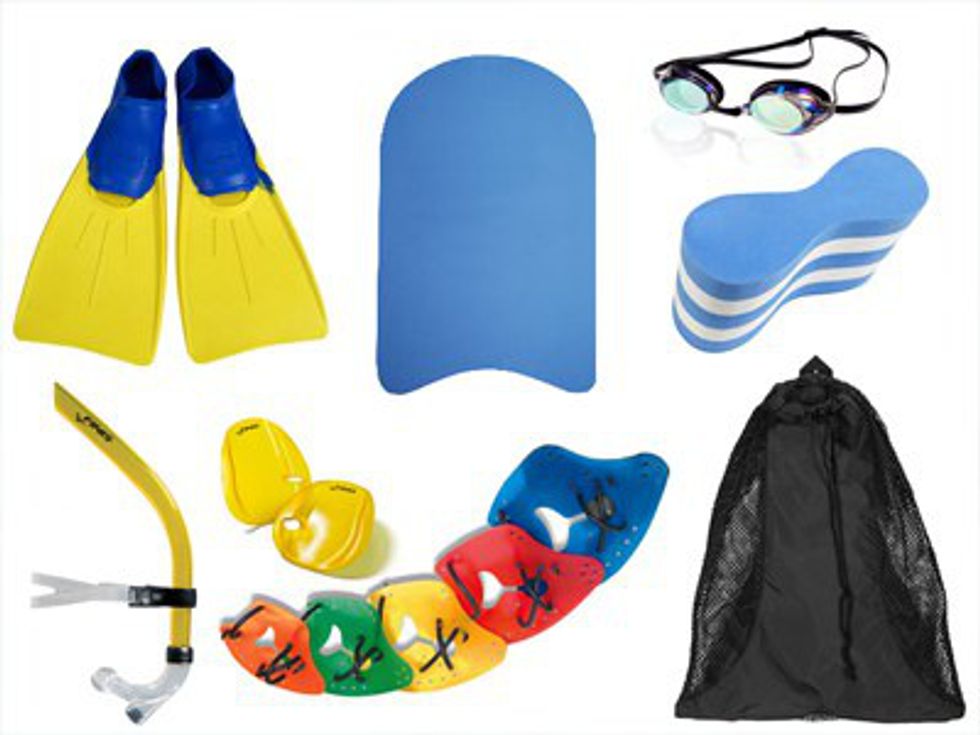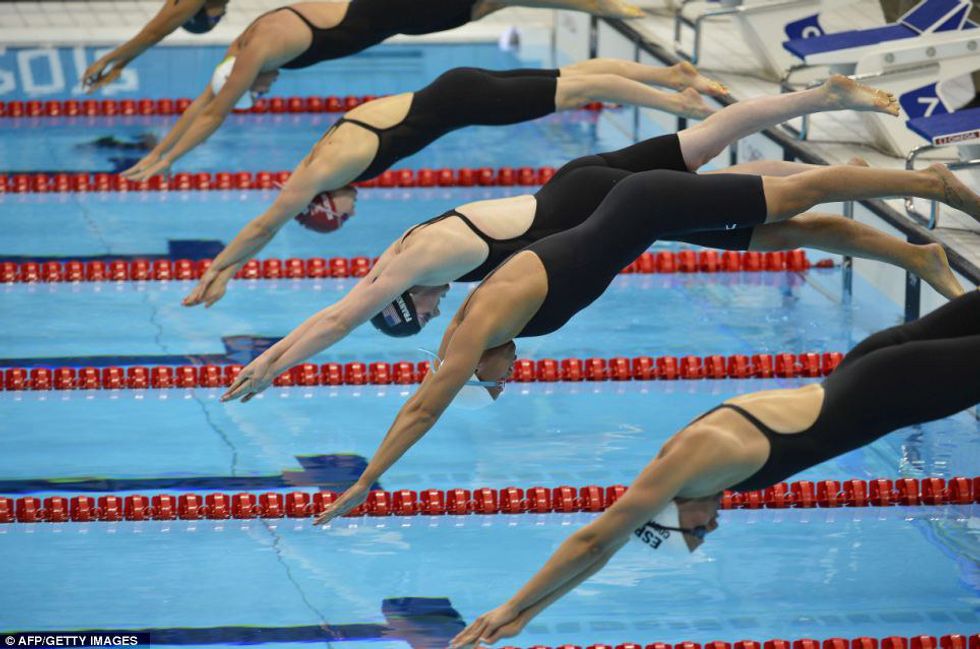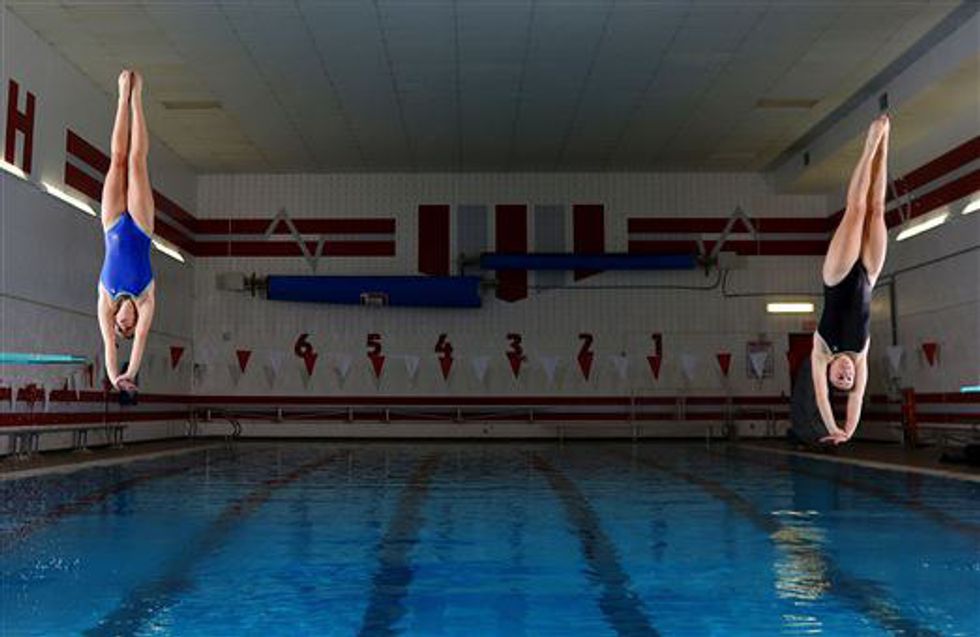Swimming and diving are often thought of as being the same sport, when in reality there are a lot more differences than similarities. The misconception is probably due to the fact that most high schools and colleges combine both into “one” sport, meaning they’re parts of the same meets. I use the word one in quotations because having meets together is the only way they are the same. Here are the most important differences between swimming and diving.
How the sport works
In swimming, people swim a certain stroke for a certain difference, and whoever goes the fastest wins. It’s that simple. Well, there are rules that specify if a stroke is legal, but these rules are relatively easy to follow. In diving, divers have a set of dives that the judges will score them on. In diving, it matters how pretty the dive is, while in swimming it only matters how fast the race is swum.
Scoring
As said in the previous paragraph, diving is scored based on essentially how pretty the dive is. Swimming, on the other hand, has a complicated score system where first place gets a set number of points, second place gets less, and so on until there are no more points to give in that event (or there are no more swimmers who need to be scored). In a swimming and diving meet, the points from all the divers and the points from all the swimmers are combined, and the team with the most points wins.
Required swimming ability
In swimming, people need to be able to swim 50 yards (down and back in most lap pools, or just across in a 50 meter Olympic sized pool), except in cases of very young age group swimmers, and the Special Olympics. If you’re a fast swimmer, you’re going to need to be a pretty good swimmer regardless of the distance you have to swim (most Olympic swimmers in the 50 freestyle don’t breathe during their race). Divers only need to be able to swim to the wall after a dive.
Equipment
Not counting what is already part of the pool or pool deck, swimmers need a fair amount of equipment. For meets alone, a swimsuit, swim cap, and goggles are needed. For practice, a kickboard, pullbouy, flippers, hand paddles, and a snorkel are often used. Sometimes stretch chords, parachutes, and anything coaches want to make use of are used as well. For meets, divers only need a swimsuit. For practice, some divers wear a T shirt to soften a bad entry (belly flop), but otherwise just need a swimsuit. On occasion, divers will use a dry land diving board (a diving board over a trampoline or gymnastics mat) or a trampoline to practice tricks. Both swimmers and divers, along with most other athletes, lift weights as well to supplement their training.
Racing start vs. straight front dive
When swimmers do racing starts, they want to get out as far as they can while still landing headfirst in the water. The further you get, the shorter the distance you have to swim, which means a faster time. In diving, a straight front dive is when you keep your body straight coming off the board and land in the water headfirst, ideally perfectly vertical. Additionally, before doing the dive, divers need to perform an approach (3-5 steps followed by a hurdle to get the board moving before the dive), and then get in the water headfirst making as little splash as possible.
Streamline
Swimmers and divers both use streamline position (body as elongated as possible, arms over the head), both streamlines are slightly different for each sport. In swimming, the hands are stacked and the arms are made to be as narrow as possible. This is supposed to let swimmers get through the water as efficiently as possible. Divers have one hand flat, and the other wrapped around it (put one hand in front of your face without bending your elbow, as if you were trying to block the sun, palm facing away from you, and wrap your other hand around where the fingers connect to your palm. Then bring that over your head so your ears are covered). This is supposed to punch a hole in the surface of the water, which will then allow the rest of your body to pass through with minimal splash.
Finer techniques
In swimming, two of the most important technical things you can do are keep your head down and move fast. These are not things you want to do in diving. As divers are scored based on how good and pretty their dive is, divers need to be slow, deliberate, and keeps their heads up. While it’s important to be deliberate in both swimming and diving, it really needs to be slowed down and exaggerated in diving.




